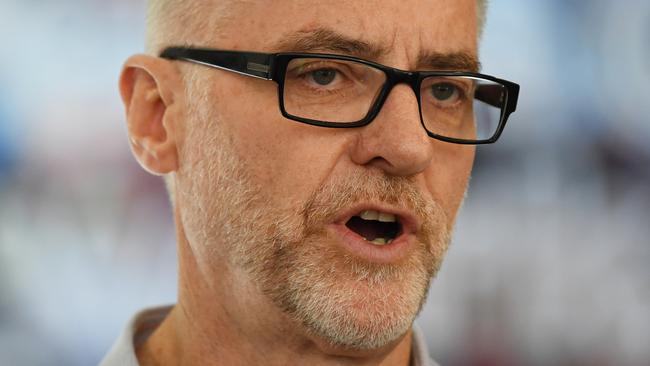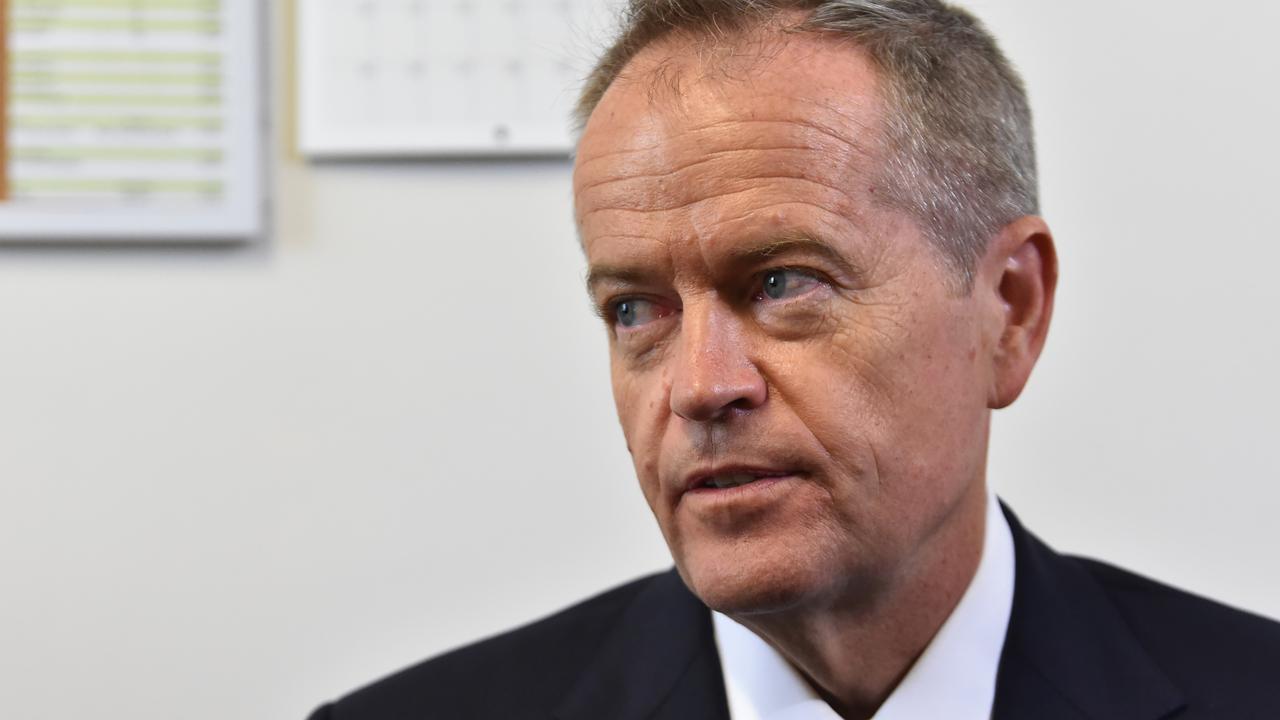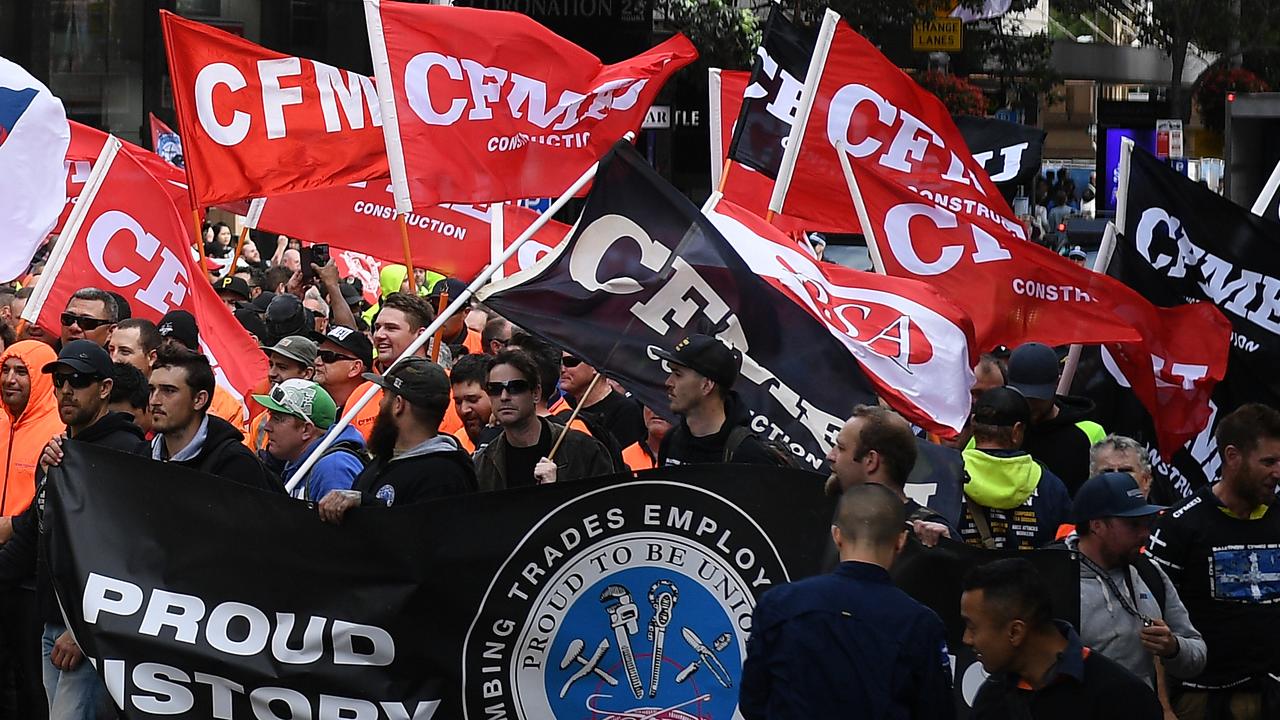Unions test Labor with airline IR fight
The Transport Workers Union is pushing federal Labor to extend industry-wide bargaining beyond low-paid industries to airlines.

The Transport Workers Union is pushing federal Labor to extend industry-wide bargaining beyond low-paid industries to airlines, setting up a potential showdown with Qantas chief executive Alan Joyce, who has warned that the policy will send workplace relations back to the 1970s.
The push by the influential union increases pressure on Bill Shorten before the ALP national conference this weekend, with senior party figures seeking to confine conference support of industry-wide bargaining to sectors such as cleaning and childcare.
Tony Sheldon, who recently stood down as TWU national secretary to stand for the ALP in the Senate, said the union wanted Labor to commit to allowing industry-wide bargaining across the aviation industry if the Opposition Leader won next year’s election.
Mr Sheldon, a former ALP vice-president, accused aviation companies including Qantas of gaming the enterprise-bargaining system, saying unions needed to be given more legal bargaining power to take on employers. “It needs to be extended beyond low-income earners,’’ he said. “It’s about rebuilding the middle class, which is getting smashed. You do that by having fairness for low-income workers and fairness for middle-income earners.”
Mr Joyce said last month any move to reintroduce industry-wide bargaining would wreak havoc with the airline’s supply chain, and the wider economy.
Opposition workplace relations spokesman Brendan O’Connor has said his priority and focus when it comes to industry bargaining was on “those who are not getting a fair share”. He has nominated workers such as cleaners and childhood educators but has said Labor would “examine other areas, too”.
According to an extract of a speech Mr O’Connor will give to the National Press Club today, he will take a swipe at Qantas, saying: “I remember the time when corporate employers used to give their employees bonuses at Christmas, to show them how much their contribution to the company was valued. This year, Qantas asked their employees to ‘volunteer’ to work for free over the holidays. That’s a strange way to say ‘Merry Christmas’ from a company that recorded a profit in excess of $1 billion.”
While industry-wide bargaining is expected to be a key focus of the industrial relations policy debate at the ALP conference, sources said details of any industry bargaining framework were not likely to be released until closer to next year’s federal election.
Rival union leaders said yesterday they did not expect the conference to support industry- wide bargaining beyond industrially weak low-paid workers, saying there was strong resistance from senior party figures about extending the policy to industrially strong unions. “There is too much fear in terms of its potential misuse and not enough detail about how it would work,’’ one union leader said.
Mr Sheldon said he would like the conference to give in-principle support for industry bargaining in sectors beyond low-paid industries, and the detail could be worked out in the lead-up to the federal election and if Labor was returned to government. He said the union would also intensify its push for the return of the Road Safety Remuneration Tribunal but it would likely operate within the Fair Work Commission rather than as a separate body.
Mr Sheldon said Labor should support greater employment rights for gig-economy workers, including collective bargaining rights and protection from unfair dismissal.
The Australian reported in October that Labor was examining giving unions and workers the right to strike in support of industry-wide pay claims but the Fair Work Commission could be given greater powers to suspend and cease industrial action against multiple employers.
Mr O’Connor, in his speech today, will say Labor acknowledges that the problem with stagnating wages is real, complex and requires positive action from government. It is understood the speech will not outline new policy proposals but highlight previous announcements Labor argues will help to address stagnating wages, insecure work, underpayment of workers and deficiencies in the enterprise-bargaining system.
Mr O’Connor will also highlight Labor’s policy requiring labour-hire employees to be paid the same as directly employed workers doing the same work in the same workplace. The Australian revealed this week that in a bid to allay business concerns about the proposals, employers would be given an extended period, possibly 12 to 18 months, to comply with the new labour-hire laws if Mr Shorten wins the election.
Mr O’Connor will say larger employers and corporations are outsourcing labour to smaller employers through franchises, subsidiaries and related corporate entities, subcontracting, independent contracting, both real and sham, and labour hire. “This practice means that it is less likely that a worker is employed by the economic decision-maker; their wages are effectively set by the head of the chain, not by their direct employer,’’ he will say. “It makes it harder for workers to collectively bargain, because although they may work at the same site or in the same business, it is not necessarily for the same employer.
“It can also set up a situation where the only point of competitive tension in the industry is the cost of labour. This means employers who do negotiate better pay and conditions with their workers are vulnerable to being undercut by those who won’t, or by those unscrupulous or greedy employers, for whom the temptation to underpay and exploit workers in order to make a profit seems to be irresistible.”
Given union density is about 15 per cent, he says many workers do not have a bargaining representative to help them get a better deal: “Five years into this Liberal-National government and it seems as though there is a new example of corporate greed and worker exploitation almost every week.’’




